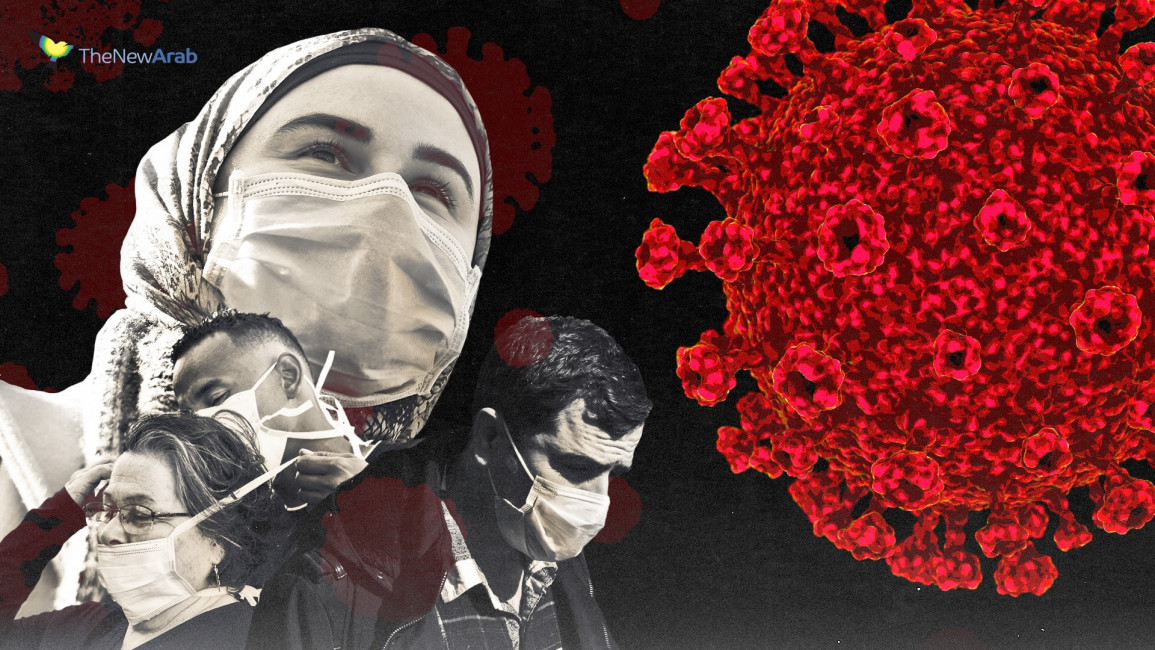The Middle East at war with coronavirus: Top stories from 20 March
Iran cancels Nowruz celebrations as coronavirus deaths exceed 1,400
Iran has cancelled Nowruz celebrations in a bid to get on top of its swelling coronavirus problem.
Iran's death toll has risen to 1,433 as the country continues to battle the biggest coronavirus outbreak in the Middle East.
Deputy Health Minister Alireza Raisi said 19,644 people are now infected in Iran, with 149 people dying in just one day.
Iran's Supreme Leader Ayatollah Ali Khamenei and President Hassan Rouhani addressed the nation during a televised speech, calling on Iranians to stand together during this difficult time.
"At the end of the (Iranian) year, we encountered an uninvited destructive guest, not only us but more than 150 countries and nations," Rouhani said.
"It was the coronavirus. This virus could jeopardise the people's health and even their businesses."
Jordan activates emergency law to combat coronavirus
The Jordanian government has declared a state of emergency as part of a series of measures to limit the spread of COVID-19, Human Rights Watch said today.
|
The ministry did not provide details about the arrests but there have been instances in other countries of misinformation shared online including in Indonesia and the United States.
On 17 March, 2020, Jordan's King Abdullah II issued a royal decree activating a 1992 law that grants the prime minister sweeping powers to curtail basic rights, but Prime Minister Omar Razzaz pledged to carry it out to the "narrowest extent" and stated that it would not impinge political rights, freedom of expression, or private property.
"Jordanian authorities should stick by their commitment not to abridge basic rights under the state of emergency and to ensure that all measures taken are necessary and proportional to the threat posed by the pandemic," said Michael Page, deputy Middle East director at Human Rights Watch.
"The test of every nation is how it treats its citizens in times of crisis."
Jordan had recorded 69 COVID-19 cases by 19 March, but the government had already imposed the pre-emtive restrictions, closing the kingdom’s land and air borders, as well as converting over 34 hotels into quarantine centres and banning crowds of 10 or more people.
Turkey detains 64 over 'provocative' coronavirus posts
In a controversial move to curb misinformation, Turkey detained over 64 people over "provocative and baseless" social media posts about the new coronavirus pandemic, the interior ministry revealed today.
Read More: Lebanon's medical students on the frontline in fighting coronavirus
"We have found 242 suspects making baseless and provocative coronavirus posts on social media, and 64 have been detained," the ministry said on Twitter.
Turkey has so far confirmed four deaths from the novel coronavirus, while 359 cases of infection have been recorded.
Ankara has taken a series of measures including temporarily shutting schools and universities as well as cinemas, gyms and shisha cafes.
Israel approves new lock down measures, Palestinians recover from coronavirus
Israel's government has approved sweeping emergency measures to reduce the movement of people as the country appeared to be veering towards a constitutional crisis.
The government unanimously voted through emergency regulation aimed at reduce the movement of Israelis during the coronavirus epidemic, including a reduction of activities in public space and restrictions on trade, recreation and leisure activities for seven days.
 |
Meanwhile, 17 Palestinians have reportedly recovered from the coronavirus, bringing hope to the region, the Palestinian Authority Minister of Health Mai Alkaila announced.
The Palestinians were in quarantine at the Angel Hotel in Bet Jala, near Bethlehem.
"I congratulate the patients, their families and the general public for the recovery of the 17 citizens," Alkaila said.
Malaysia deploys troops
Malaysia will deploy the army to support police in enforcing tough restrictions to halt the spread of the coronavirus because many people are flouting isolation rules, a minister said.
People have been told to stay at home and all schools and most businesses have closed, while Malaysians are barred from travelling overseas and foreigners from entering the country.
But some are ignoring the measures introduced this week, with people still going for walks in parks and eating out.
Police had originally been tasked with enforcing the restrictions, but Defence Minister Ismail Sabri Yaakob said the army would be brought in from Sunday.
"We are confident that with the army's help, stricter enforcement can be carried out," he told a press conference.
"There are still many who don't care about the orders from the government."
Malaysia has so far reported 900 virus cases, the highest figure of any Southeast Asian country.



